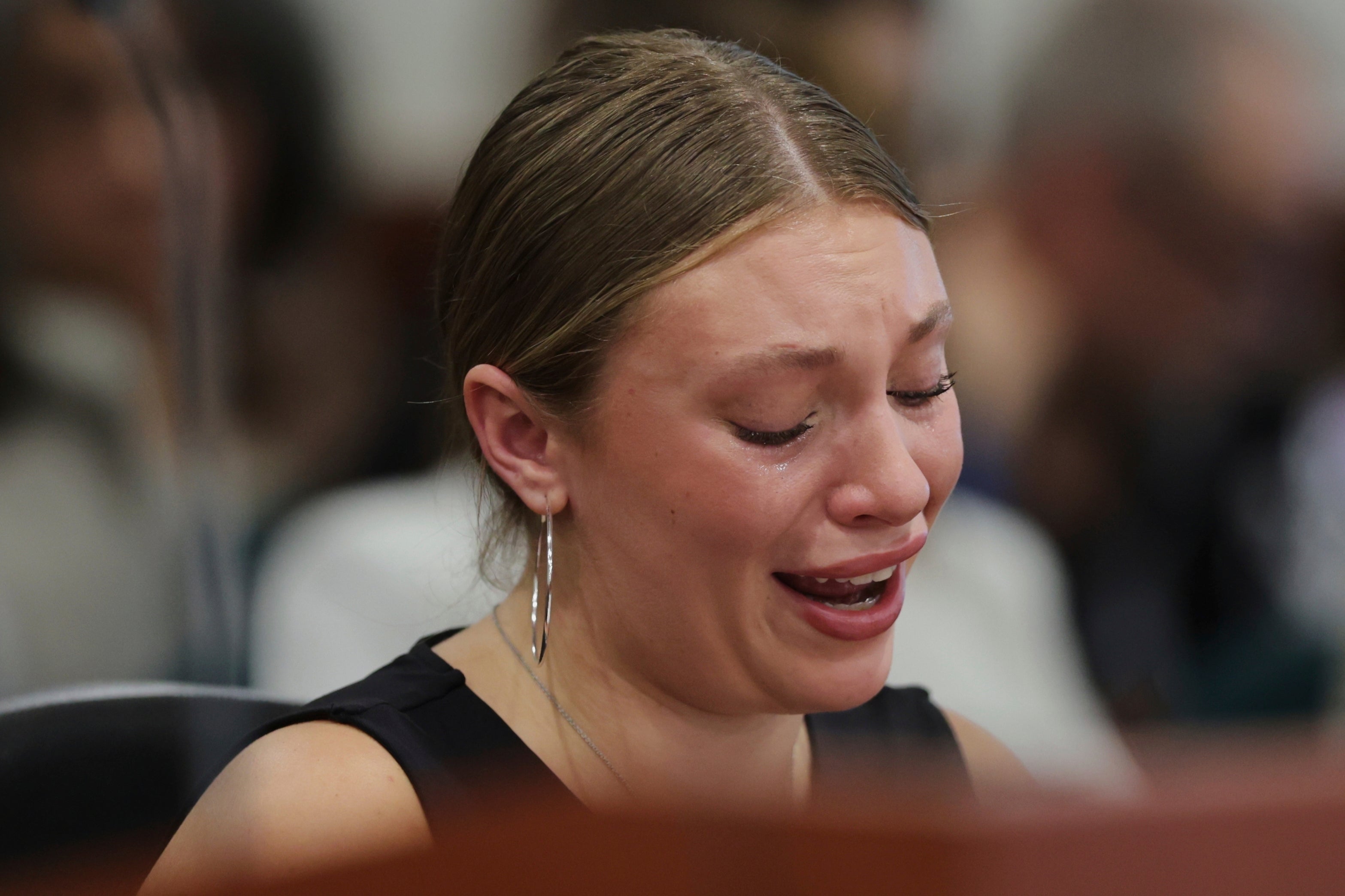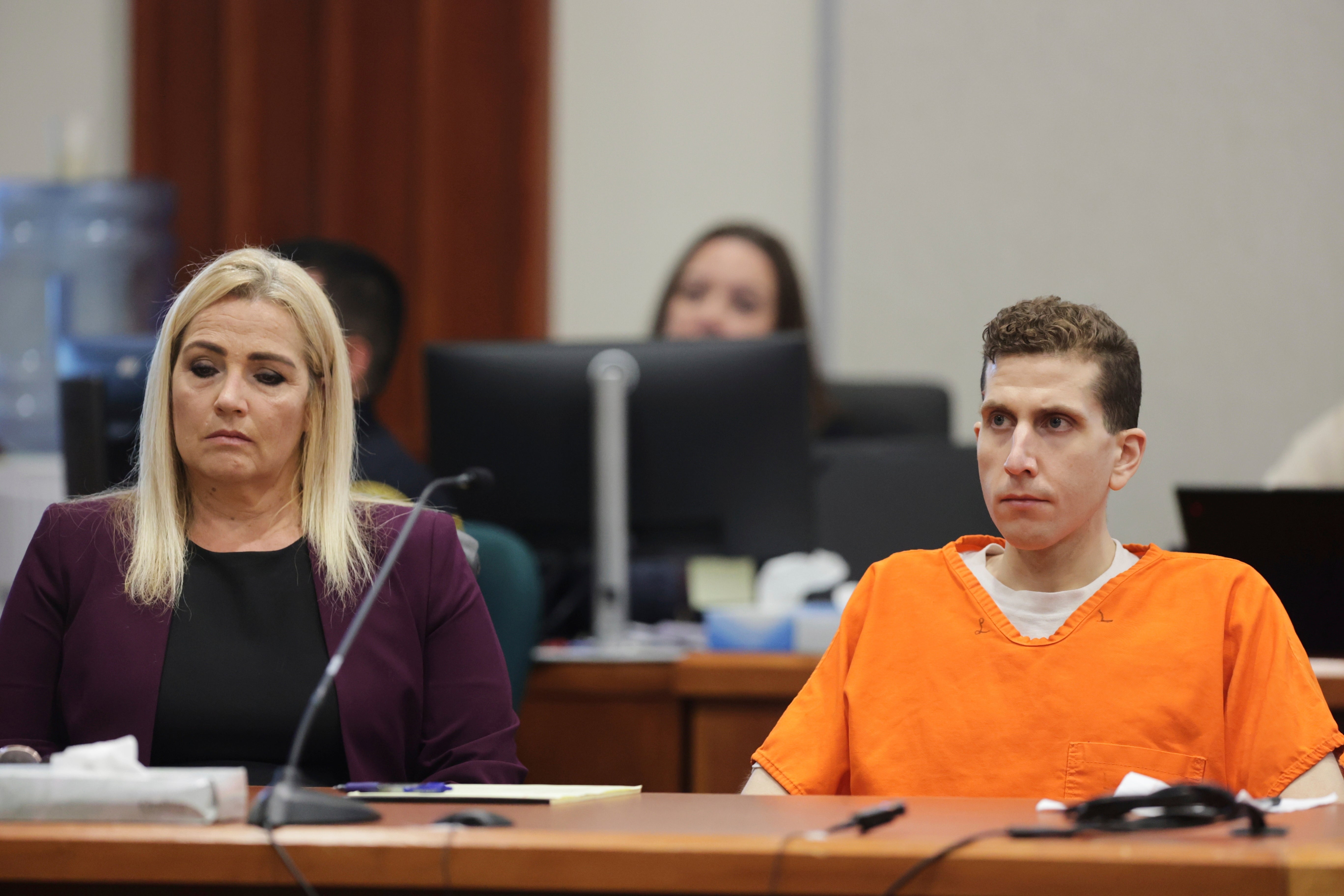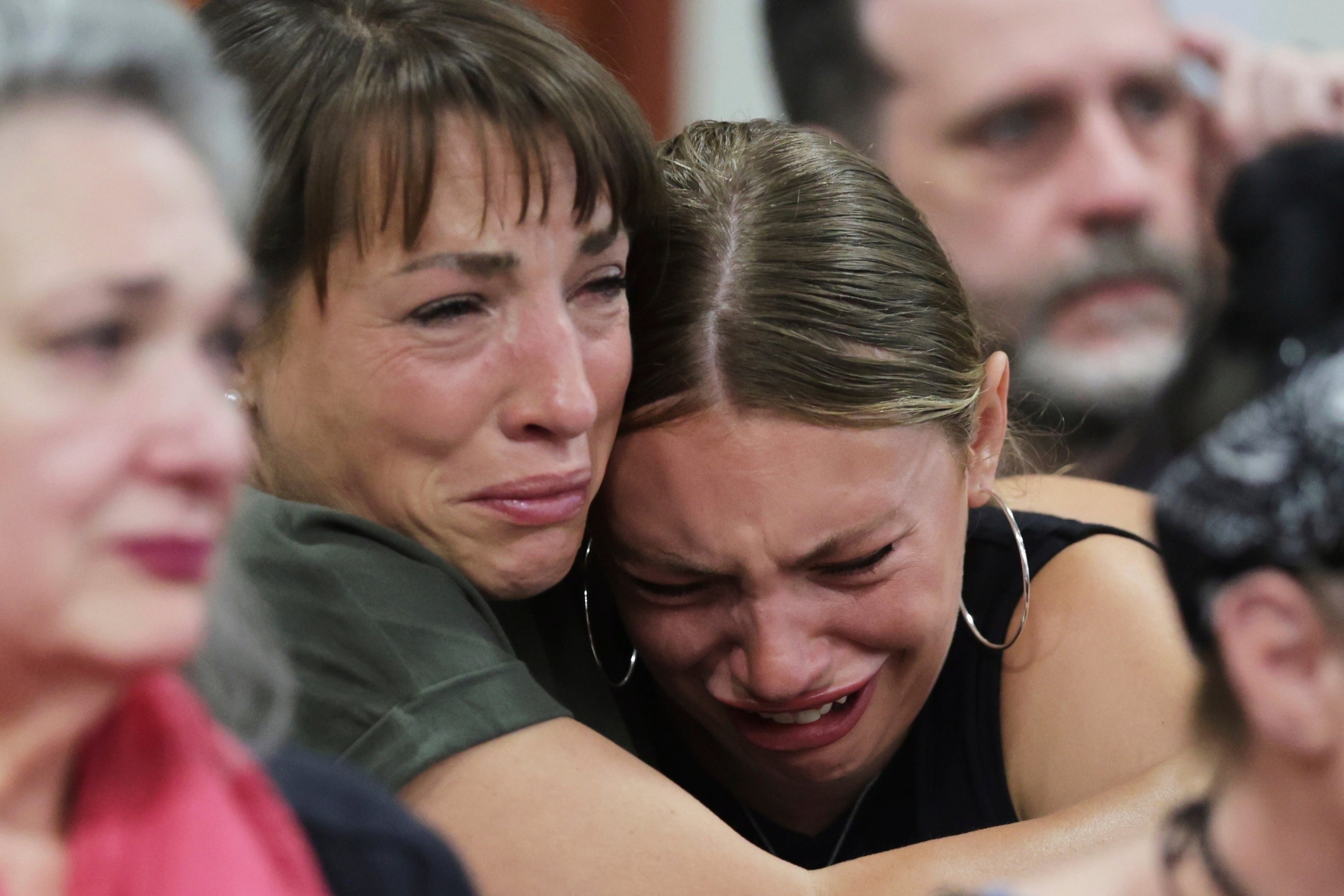In gut-wrenching testimony, one of the surviving roommates of the Idaho college murders sobbed as she confronted Bryan Kohberger before he was sentenced to die in prison about the devastating wake of the brutal murders of her four young friends.
“He took away birthdays, graduations, celebrations and all the memories we were supposed to make,” Dylan Mortensen said at the Ada County Courthouse in Boise, Idaho, in her first public statements since the murders.
“He is a hollow vessel, something less than human. Authority, without empathy, without remorse. He chose destruction. He chose evil. He feels nothing,” she said.
University of Idaho students Kaylee Goncalves, 21, Madison Mogen, 21, Xana Kernodle, 20, and Ethan Chapin, 20, were stabbed to death in the frenzied attack at their college home around 4 a.m. on Nov. 13, 2022.
Two roommates, Mortensen and Bethany Funke, survived the horrific violence.

Due to a gag order over the case in anticipation of a trial, the two surviving roommates had been unable to speak earlier, and used the opportunity of Kohberger’s sentencing hearing to address the devastation of his actions.
“All of it is gone,” Mortensen said, as she wept. “And all the people who love them are left to carry that forever. He didn’t just take them from the world, he took them from me. My friends, my people, who felt like my home.”
In an emotional witness statement written by Funke, read on her behalf by friend Emily Alandt, she described the warmth of their off-campus home, full of friends and good memories.
“Our house was not just a house, it was our home,” wrote Funke. “It was where we laughed til we couldn’t breathe, make meals, did crafts, binge watched reality shows, played games and spent lazy days on the couch. It was movie nights, wine nights, morning debriefs, pranks, hot chocolate, cookies and warmth.
“I will cherish those memories forever and then will not let what happened erase how special our home was or how much those memories meant to me,” Funke said.
Kohberger admitted his guilt in a plea deal earlier this month that ensured he would not receive the death penalty but has refused to say why he did it.

“Because of him, four beautiful, genuine, compassionate people were taken from this world for no reason,” Mortensen said.
“He didn’t just take their lives. He took the light they carried into every room. He took away how they made everyone feel safe, loved and full of joy,” she said. “He took away who they were becoming.”
Mortensen cried while speaking about what the loss meant for her personally, revealing that after the murders she spent a year sleeping in her mother’s bed. Too terrified to close her eyes, she feared that if she blinked someone would be there. Wherever she went she made an escape plan, looking to see what she could use as a weapon.
Mortensen said she regularly experiences panic attacks “the kind that slam into me like a tsunami out of nowhere. I can’t breathe, I can’t think. I can’t stop shaking,” she said, sobbing so hard that she struggled to get the words out.
“He took away my ability to trust the world around me. What he did shattered me in places I didn’t know could break.”
“I should have been having the college experience and starting to establish my future. I was forced to learn how to survive the unimaginable.”
Both Mortensen and Funke heard noises that concerned them the night of the murders. They texted their friends asking if they were OK. Mortensen, who had seen someone in a black ski mask leave their house, ran downstairs to hide with Funke.

“When I first woke up that morning, I had no idea what happened,” wrote Funke, in a statement read on her behalf by Emily Alandt. Funke had a toothache that morning, so called her father, a dentist, took an Advil on his advice and went back to sleep — before waking up again a few hours later.
“I was so frantic that morning, and scared to death,” read Funke’s statement. “If I had known I, of course, would have called 911 right away. I still carry so much regret and guilt for not knowing what had happened and not calling right away, even though I understand it wouldn’t have changed anything, not even if the paramedics had been right outside the door.”
She said that after she called 911, she doesn’t remember “a thing” from the rest of the day. “It was like my brain wiped that whole memory,” Funke wrote.
She said that the public skepticism about her actions caused even further trauma, resulting in her sleeping for nearly a year in her parent’s bedroom and refusing to open the blinds so that no one could see her.
“I was grieving, numb and unsure of what had happened was even real, and at the same time, I was getting flooded with death threats and hateful messages from people who did not know me at all or know the dynamic of our friendship,” Funke continued.

She went on later to say that she tries to live now in honor of her four killed friends.
“Everything I do, I do it with them in mind,” Funke wrote. “I am still scared to go out in public, but I force myself to do things because I know that they would want me to keep living my life to the forest. I am beyond blessed to still be here, and I refuse to take that for granted when they do not get a chance.”
Mortensen echoed her sentiments.
“He tried to take everything from me: my friends, my safety, my identity, my future,” she declared. “He took their lives, but I will continue trying to be like them, to make them proud. And living is how I honor them. Speaking today is to help me find some sort of justice for them, and I will never let him take that from me. He may have taken so much from me, but he will never get to take my voice.”
The gruesome murder case of four college students in the Idaho town of Moscow more than two and a half years ago concluded Wednesday, with killer Bryan Kohberger sentenced to four life terms in prison for the slayings.




